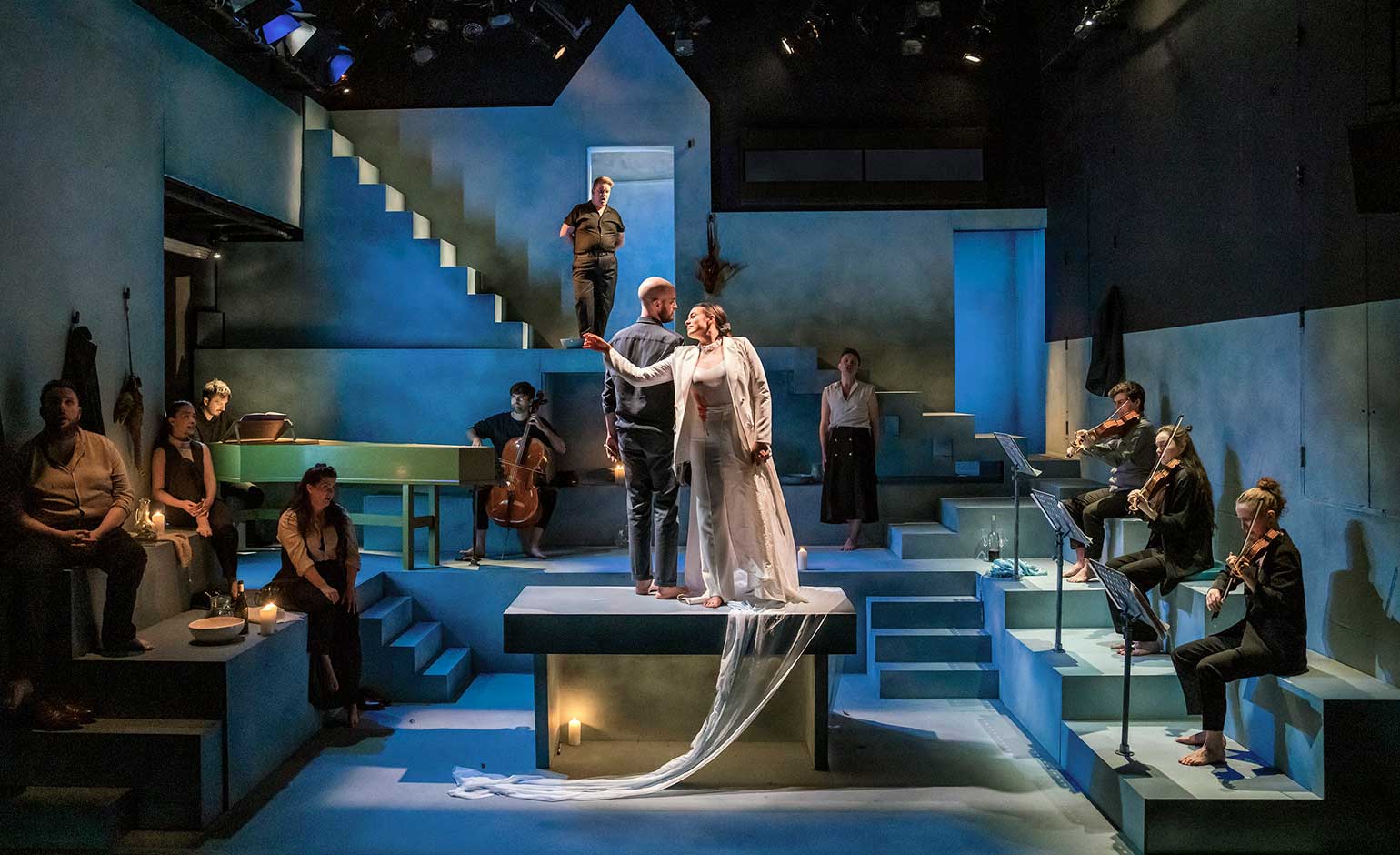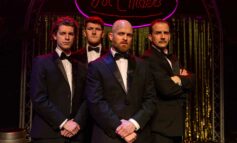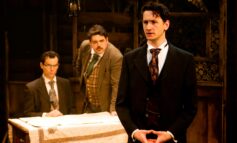Purcell’s ‘Dido and Aeneas’, probably the first English opera, is apparently also the first opera to be performed in the Ustinov Studio.

The Company in Dido and Aeneas | Photo © Tristram Kenton
Small-scale but intense, it’s ideally suited to the venue. Performed without a break, it delivers great variety of stage action, as well as a musical fabric that is richly satisfying.
Eight singers provide principals and chorus, together with a string quartet, all directed from the harpsichord by Michael Papadopoulos: his reading of the score is full-blooded and lively, though some chorus moments seemed out of scale with the acoustic of the Ustinov.
In a uniformly strong cast, pride of place goes to the Belinda of Ella Taylor, the first to sing and a constant throughout as confidante of Dido and quasi-narrator.
Taylor has a clarion soprano which contrasted well with Dido, the only truly rounded character in Purcell’s piece, here portrayed both expressively and touchingly by Madison Nonoa. Dominic Bowe made the most of the rather thankless role of Aeneas.
Director Isabelle Kettle presented the opera as a psychodrama of mourning, prefacing it with a Sylvia Plath poem. The torment experienced by Dido was manifest, certainly, and her relationship to Aeneas clear; but the chorus activity was sometimes a bewildering bustle of gesture and movement.
The delivery of the final scene showed that less can indeed be more: Dido’s Lament ‘When I am laid in earth’ was simple and moving, as was the gradual diminuendo of the chorus leaving the stage.
This was an engaging and powerful theatrical experience, enhanced by the intimacy of the setting.
_ _ _ _ _ _ _ _ _ _ _ _
Reviewer: Niall Hoskin



